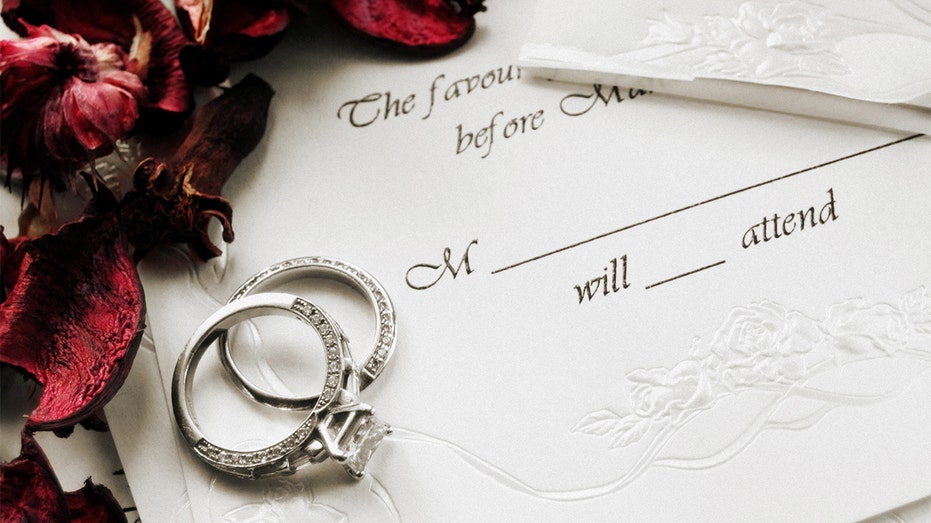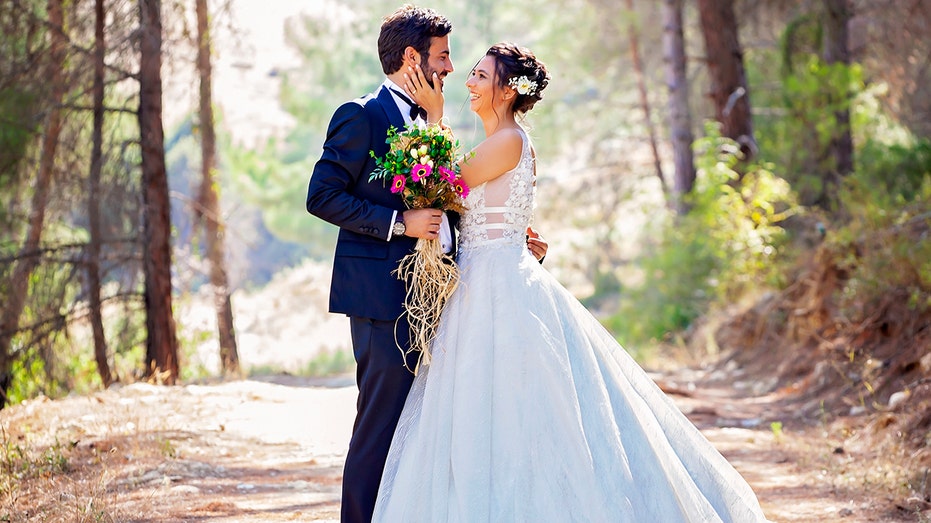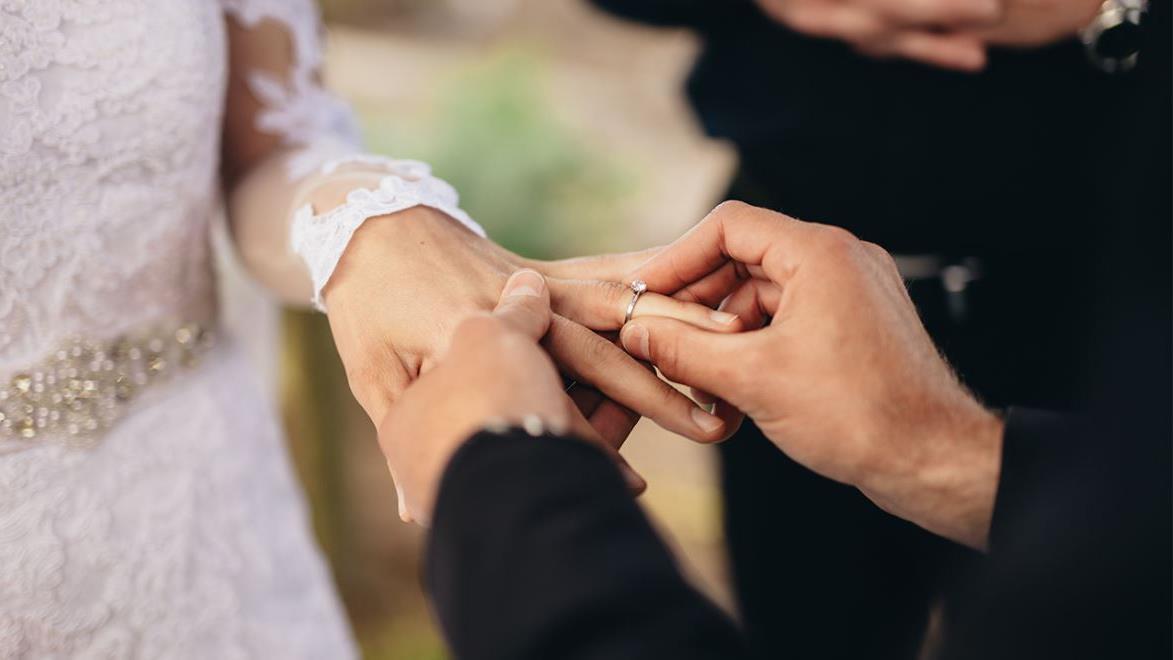Who pays for what in a wedding?
Tying the knot can mean splitting cost with family and friends
It’s no secret that wedding celebrations cost a pretty penny, which is a big reason why both families have traditionally split the expense.
Most modern couples pay for the majority if not all of the costs associated with their wedding – this is especially if they have been living together for a period of time. However, parents and family members and even friends of the bride and groom have been known to still contribute in some way.
WEDDING GIFT SPENDING: HOW MUCH IS TOO MUCH? HOW MUCH IS NOT ENOUGH?
If navigating monetary contributions is a difficult task, here is a breakdown of who traditionally pays for what in different parts of a wedding, according to most American wedding etiquette guides.
The engagement party.

(iStock)
It's no secret that once upon a time the bride's parents were the ones to shoulder most of the costs associated with the wedding. This includes the marrying couple's engagement party and several other wedding-related events and/or elements that lead up to the special day.
WEDDING PARTY SPENDING: HERE'S HOW TO AVOID DEBT WHEN A LOVED ONE GETS HITCHED
The engagement announcements.

(iStock) Wedding invitations
The bride’s parents are traditionally responsible for sending out and paying for the couple’s engagement announcements. This can be an engagement announcement in each family’s local newspaper or formally printed announcements. The bride’s parents also tend to pay for the wedding invitations, which is why their names have historically been displayed at the top.
LAVISH WEDDINGS ON YOUR MIND? WEDDING LOANS? HERE ARE THE PROS AND CONS
The bridal and groom shower.

(iStock) Bridal shower
Typically, pre-wedding showers are hosted by a close friend or family member or someone from the wedding party. Whoever hosts the shower generally pays, though sometimes this expense can be split if more than one person is hosting.
CHEAP WEDDINGS ON THE RISE: HERE ARE THE PROS AND CONS
The wedding planning services.

(iStock)
The bride’s family is generally responsible for paying for all the wedding planning services, including the bride’s attire, floral and décor, transportation, photography and videography, travel and lodging for the officiant and sometimes the bridal party.
The bride, on the other hand, is expected to pay for personal wedding flowers and gifts for her bridesmaids and other special guests as well as the groom’s ring and present.
WHAT TO DO WHEN CORONAVIRUS POSTPONES YOUR WEDDING
The groom’s family is generally responsible for covering the cost of corsages and boutonnieres for the immediate members of both families. They are sometimes responsible for the lodging of the groom's attendants if money is not an issue.
The groom is expected to pay for the marriage license, the officiant’s fees, the bride’s bouquet, engagement and wedding rings. And just like his wife-to-be, the groom is responsible for the boutonnieres and gifts for his groomsmen and other special guests.
The bachelorette and bachelor party.

(iStock) Bachelor party
Bridesmaids and groomsmen are traditionally responsible for paying bachelorette and bachelor expenses. Every attendee is expected to chip in except for the bride and groom.
CORONAVIRUS MAY CREATE WEDDING DRESS SHORTAGE IF OUTBREAK PERSISTS
The rehearsal dinner.

(iStock) Pre-wedding rehearsal dinner wine toast
The groom’s parents usually organize and pay for the engaged couple’s rehearsal dinner, which can either be a small gathering for wedding party members or a large gathering for all wedding guests depending on their budget. The rehearsal dinner shouldn’t outdo the actual wedding, though.
GET FOX BUSINESS ON THE GO BY CLICKING HERE
The ceremony and reception.

(iStock) Bride and groom
The bride’s parents are traditionally responsible for covering the execution of the actual wedding day. This includes the ceremony and reception as well as music, assorted entertainment, guest favors and event rentals.
In some circumstances, the groom’s parents may pay for the bar or flowers to offset the reception’s cost.
CLICK HERE TO READ MORE ON FOX BUSINESS
The honeymoon.

(iStock) A couple relaxing on a beach
The groom traditionally pays for the honeymoon as the new head of the household. However, this can be a shared expense for the newly married couple. Alternatively, today’s couples may also turn to honeymoon registries such as Honeyfund or Traveler’s Joy where guests can contribute funds for a post-wedding vacation.




















